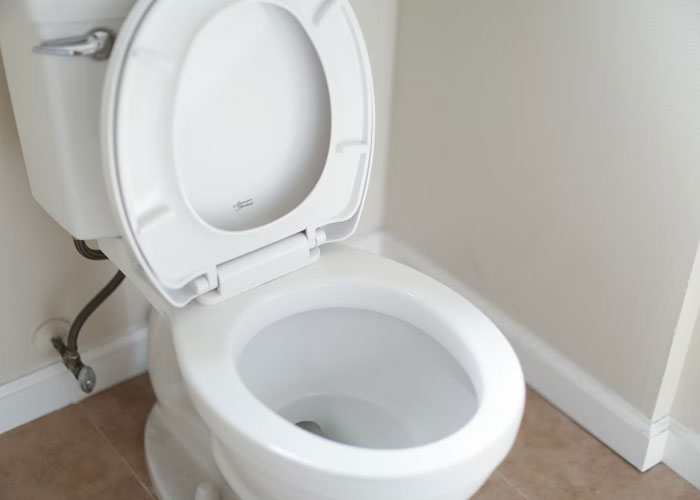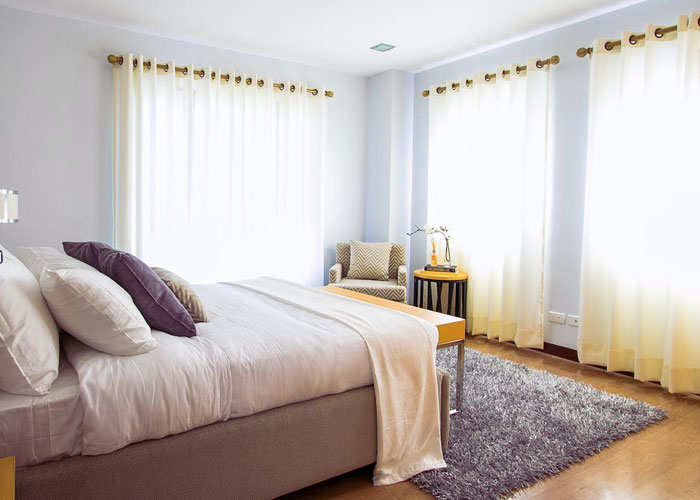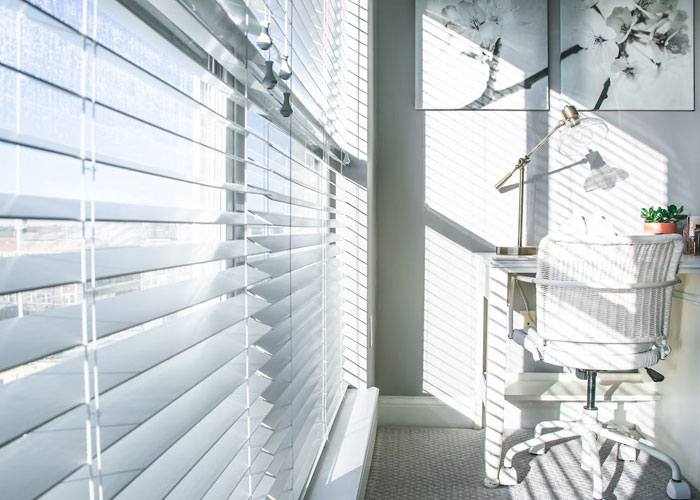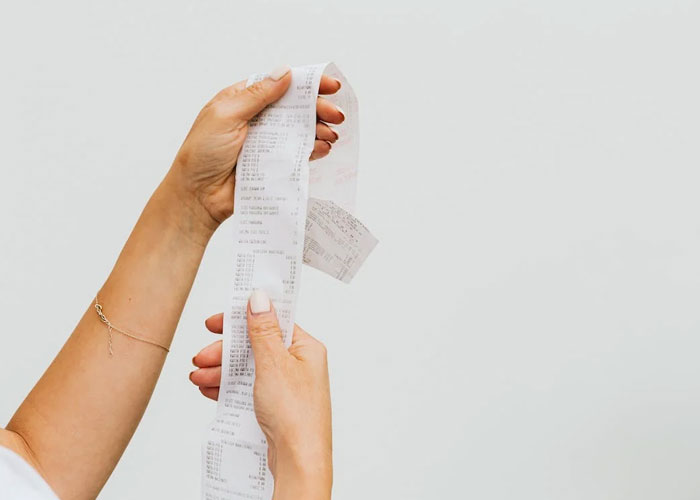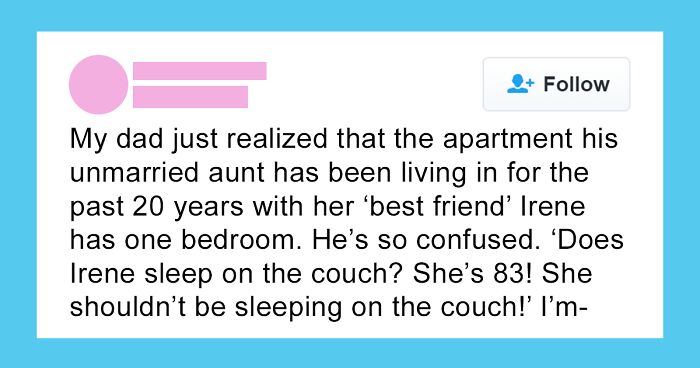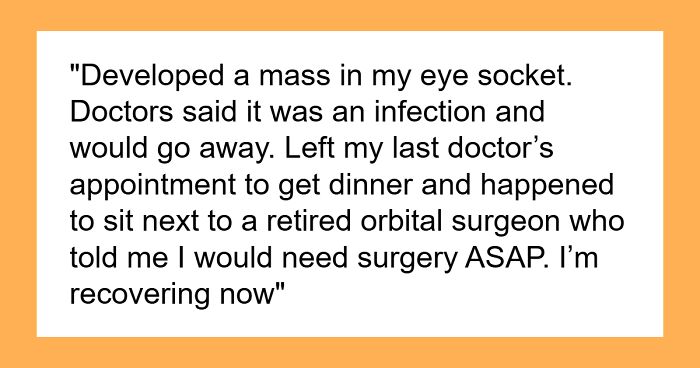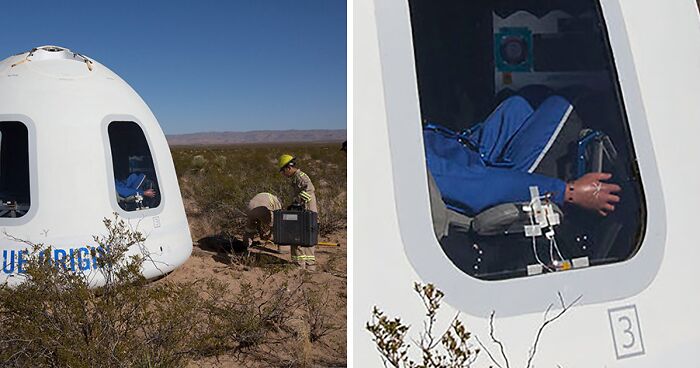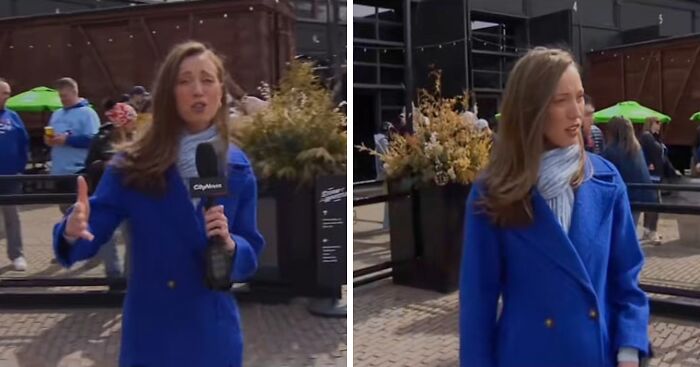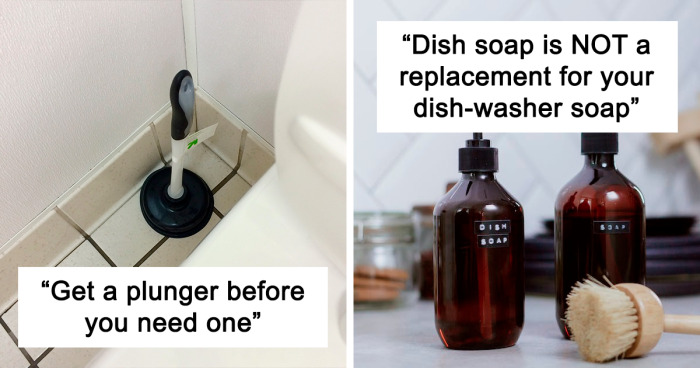
49Kviews
30 People Share Useful Tips And Things To Check Before Moving Into Your First Apartment
In 2021, the average age that EU residents moved out of their parents’ homes for the first time was 26.5. However, the age varied greatly by country, with Swedes typically moving out at age 19 while adults in Portugal tended to take their time, living with their parents until they hit 33 years old, on average. Regardless of what age you first leave the nest, though, there is plenty to learn when you live on your own for the first time. You might suddenly realize how much effort it takes to keep floors clean, why your parents were so concerned about turning off lights and taking short showers, and how landlords might not always have your best interest at heart.
So to help all of you pandas out there who are planning on moving out on your own soon, we’ve gathered a list of “first apartment” tips that Redditors have shared down below. From how to avoid being scammed to knowing which appliances are actually worth purchasing, we hope you’ll find something useful within this list that will spare you all some trouble. Keep reading to also find interviews with the experts at liv.rent and Parker Cox from Tenant Planet, and be sure to upvote all of the tips you wish someone had given you before you flew the nest!
This post may include affiliate links.
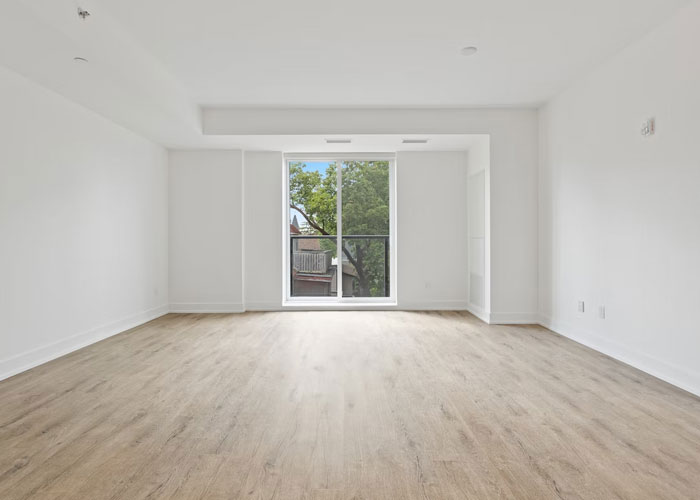 Your parents spent their adult lives collecting the items you grew up with. Don't expect to move into your apartment with a couch, end tables, decorations, a waffle maker, an espresso machine, candles, an elder tree dinning room table with onyx inlays, tv, curtains, drapes, rugs and runners. It takes time to accumulate.
Your parents spent their adult lives collecting the items you grew up with. Don't expect to move into your apartment with a couch, end tables, decorations, a waffle maker, an espresso machine, candles, an elder tree dinning room table with onyx inlays, tv, curtains, drapes, rugs and runners. It takes time to accumulate.
Involve and bring parents.
I know that's uncool but your parents can ask lots of good questions and see issues you may have missed.
To gain more insight on how to navigate the complex world of renting apartments, we reached out to the team at liv.rent, a Canadian digital platform providing renters, landlords and property managers an all-in-one tool for finding, securing and managing rental properties. They were kind enough to have a chat with Bored Panda, and explain some of the most common mistakes first-time renters make. "Many of the biggest mistakes people make when renting for the first time can be tied to a lack of education surrounding the rental process," the liv.rent team shared. "Unfortunately, the rental market is rife with scams that disproportionately target first-time renters – particularly students and newcomers to the country. These scams – which cost Canadians as much as $12.3 million in 2021 alone – often assume that renters aren’t familiar with their rights and what is expected of them during the application/leasing stage."
"This obviously isn’t the renters’ fault – but the reality is that those seeking rental housing need to be aware of some common rental scams and be able to recognize them in advance," the experts explained. "As an example, a common type of scam is landlords requesting an upfront cash deposit as an 'application fee'. Requiring this type of fee is illegal here in Canada and in most rental markets, but renters who aren’t educated on their rights and what’s expected of them may feel obligated to pay and end up falling victim to that scam."
"Before diving head-first into the rental process, it’s a good idea to study up on tenancy laws in your area and consult resources with tips for first-time renters. A little knowledge can go a long way in saving renters from losing their hard-earned money, or worse," the team at liv.rent added.
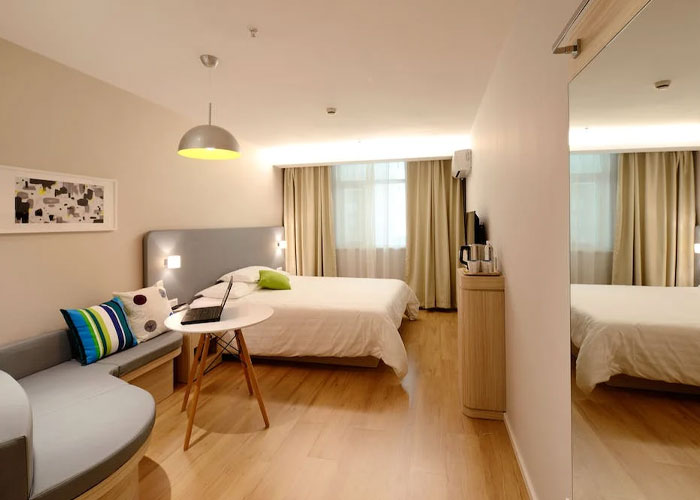 Do a walk through with the landlord and VIDEO EVERY PART OF IT.
Do a walk through with the landlord and VIDEO EVERY PART OF IT.
Agreed. BUT regardless of how you try to prepare, keep in mind that documenting EVERYTHING will help. Photos of everything, always, screenshots of attempts to call the landlord to have repairs done- plumbing etc. Read the lease very, very carefully! Information is power! Be cautious!
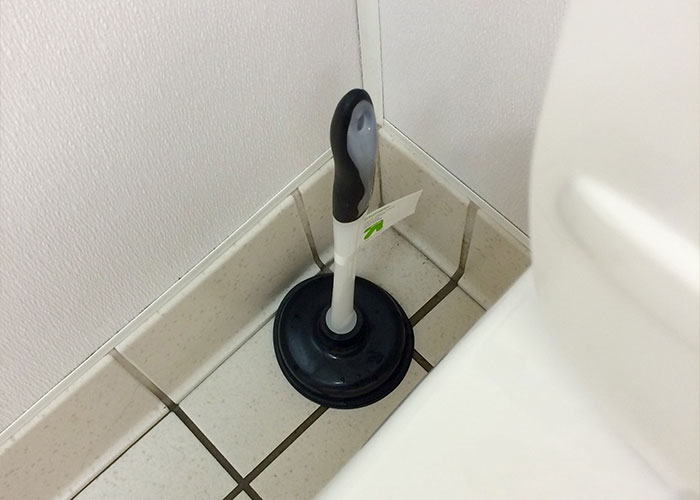 Get a plunger before you need one. Also get a bathroom trash can that has a lid.
Get a plunger before you need one. Also get a bathroom trash can that has a lid.
The experts at liv.rent also shared some of their best tips that can help the process of renting go much smoother for first-timers. "For any renters rightfully worried about encountering scams, we suggest using a platform that verifies both landlords and listings," they told Bored Panda. "To combat the growing risk of rental scams, some platforms like liv.rent have developed measures to keep renters safe by manually verifying the landlord’s identity and their ownership of the listed property through documents like Land Titles and government-issued photo ID. Choosing sites like these to conduct your housing search is a great way to avoid scams altogether and keep yourself safe."
But aside from scams, the team at liv.rent noted that it's always wise to know what you're looking for in a property and prepare accordingly. "Get familiar with the areas you’re planning on renting in and do some basic research on average rent prices, nearby transportation and amenities, and so on," they shared. "Knowing rent prices will help you avoid overpaying, while also helping you recognize listings that are too good to be true. Renters should also always ensure that they view the property either in-person or virtually before signing a lease, as this is the best way to tell if you’re dealing with a real listing."
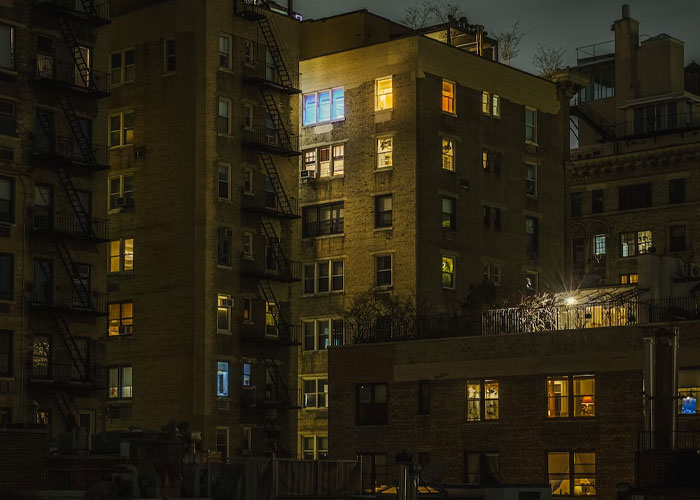 If you can visit the building at night on the weekend & see what the noise situation is inside and outside of the building. Also figure out the commute to work/uni & do the commute one morning before you move in.
If you can visit the building at night on the weekend & see what the noise situation is inside and outside of the building. Also figure out the commute to work/uni & do the commute one morning before you move in.
That's one of the most difficult things. The apartment could be quiet when you visit, but you have no way of knowing how much noice the neighbors make once they get home after work.
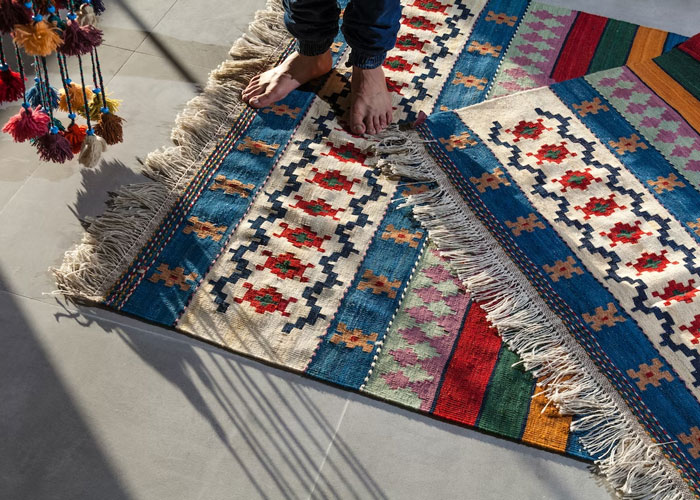 When doing the walk through with the landlord, make sure you BOTH look behind large appliances (i.e stove, fridge, etc). Landlords often deduct "cleaning fees" from your return deposit for not cleaning these areas, but don't ever actually take care of it before the next tenant moves in.
When doing the walk through with the landlord, make sure you BOTH look behind large appliances (i.e stove, fridge, etc). Landlords often deduct "cleaning fees" from your return deposit for not cleaning these areas, but don't ever actually take care of it before the next tenant moves in.
Take note of the carpets' condition during the walk through.
Ask about hanging pictures in the walls & proper move out procedures. Some landlords expect you to putty any holes. You can also ask for a paint sample to fix any minor blemishes you may have left.
Before signing the lease, make sure you clarify how much of the deposit is refundable & where the non refundable portion goes to. My last house had a nonrefundable carpet cleaning fee, but they still deducted even more from my refund when my lease ended because "I didn't get my carpets cleaned before moving out." Luckily I held on to the paper I requested from the landlord on day 1 with the deposit/fees breakdown on it. I ended up getting my entire deposit back.
... Which brings me to my final bit of advice:
*DOCUMENT EVERYTHING!!! ** Take pictures. Keep rent receipts. Save emails containing inquiries. Everything.
"In more competitive rental markets, such as Vancouver and Toronto, renters should also come prepared with all the information landlords will ask for during the application process," the experts at liv.rent added. "Since many landlords receive dozens, even hundreds of applications for a single property, coming equipped with all your documents and pre-submitting your application will go a long way towards securing you a home to rent."
"Even before viewing a property, renters should show their interest by sending an application that includes things like basic identifiers, your employment/educational history, salary information, and other factors that show you’ll make a great tenant," they recommended. "It’s also a good idea to come prepared with any questions you have, since this further demonstrates your interest and shows you’re engaged in the rental process."
 The day you move in have a box/bag with toilet paper, a hand towel, some soap, some plastic cups, and paper towels in it. That box/bag should be the first thing you put in the apartment and should be unpacked immediately. During the move you'll eventually need to use the bathroom or drink water. Now you can.
The day you move in have a box/bag with toilet paper, a hand towel, some soap, some plastic cups, and paper towels in it. That box/bag should be the first thing you put in the apartment and should be unpacked immediately. During the move you'll eventually need to use the bathroom or drink water. Now you can.
I suggest adding plastic ware and some paper plates as well. Plus a few garbage bags (you'll be making trash as you unpack) and your sheet set, 1 change of clothes, toothbrush/toothpaste and any medications you have to take at night. It will save you SO MUCH TIME searching thru boxes for stuff you NEED at it fingertips the first day.
 Buy a coffee maker that you actually want to use and stop spending $4/day on coffee.
Buy a coffee maker that you actually want to use and stop spending $4/day on coffee.
We were also curious what kinds of red flags potential renters should be on the lookout for when viewing spaces and speaking with landlords. "Rental scams can be hard to recognize during an already stressful rental process, but there are some key things renters should keep an eye out for," the liv.rent team told Bored Panda. "The first big warning sign is if the price is too good to be true. Obviously, a listing priced well below average can be tempting for renters on a budget, but it’s important to keep in mind the average rental rates in your area and steer clear of properties priced suspiciously lower than this." They went on to note that urgent demands for cash deposits or excessive personal information are almost always a bad sign, and urged potential renters to be careful not to reveal too much on applications.
"Renters should also be on the lookout for listings with blurry photos, hidden address details, or where it’s hard to find the landlord’s identity," the rental experts added. "Basically, if anything seems suspicious, it’s best to exercise caution rather than proceeding until it’s too late. This is also where researching your local rental market can be helpful, as it provides you with a good baseline for what other properties in the area rent for, so you can avoid the listings that are too good to be true."
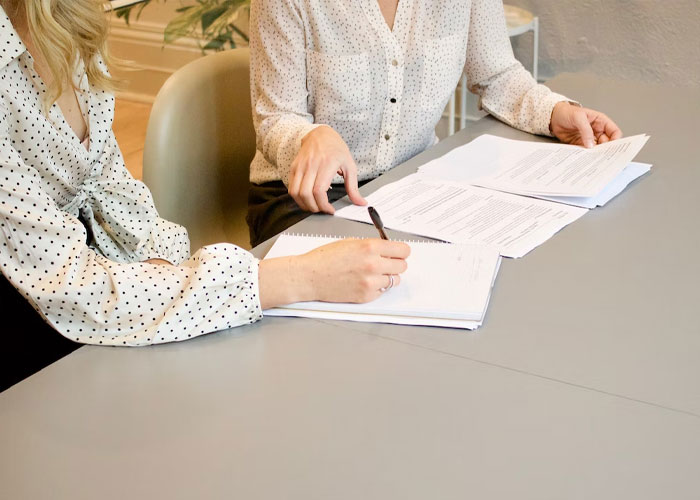 If you have roommates all on a lease, MAKE SURE you remove your name from the lease if you leave before they do, even if it's expensive to break it. I learned the hard way and got sued for $5000 in damages that weren't my fault.
If you have roommates all on a lease, MAKE SURE you remove your name from the lease if you leave before they do, even if it's expensive to break it. I learned the hard way and got sued for $5000 in damages that weren't my fault.
And do a walk-through WITH the landlord before you turn over your key. Insist on it. If they refuse, do a video walk-through of everything and have a timestamp of the video; save it in more than one place! My sister had to pay for the neighbors' leak (into her apartment) shortly after she moved out; they didn't have renter's insurance and blamed it on her. The apartment was more than happy to blame someone who could pay.
The liv.rent team also warns readers to beware of landlords who are difficult to arrange viewings with or who are overly casual about the rental process. "Informality is a huge red flag when it comes to renting, as landlords should understandably be concerned with who they’re renting to and take steps to protect their property," they told Bored Panda. "If a landlord skips essential tenant screening steps like credit checks and calls to your references, or it seems like they’re rushing through the rental process, proceed with caution. For more information on common types of rental scams, red flags, and strategies for avoiding them, you can consult our post on the topic here."
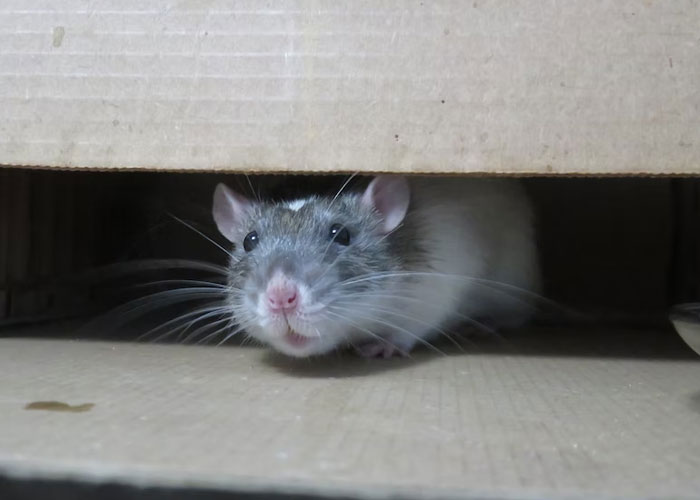 If you see one mouse, take ot very seriously - there are bound to be more and there have likely been issues in the past as in rat s**t on every surface
If you see one mouse, take ot very seriously - there are bound to be more and there have likely been issues in the past as in rat s**t on every surface
LOL, that's a picture of a rat! A domesticated pet rat, no less. Rats and mice aren't interchangeable, dude.
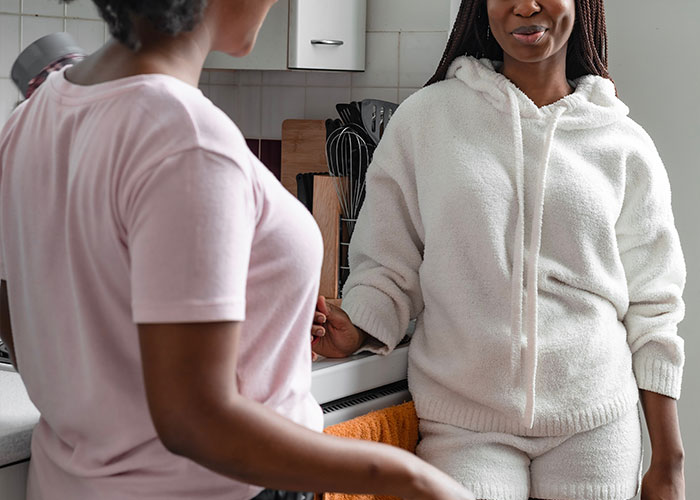 Introduce yourself to the neighbors you share a wall/floor/ceiling with. If anyone is annoyed by loud music or pot smoke or whatever, it makes them more likely to come directly to you instead of the landlord.
Introduce yourself to the neighbors you share a wall/floor/ceiling with. If anyone is annoyed by loud music or pot smoke or whatever, it makes them more likely to come directly to you instead of the landlord.
This only works if your neighbors are willing to work with you. Some are more like "oh, you work nights? I'll be sure to make lots of noise when you're sleeping" just for spite
We also asked the liv.rent team if everyone is bound to make some mistakes in their rental journey. "Renting can be stressful for anyone, let alone first-time renters, and small hiccups like forgetting to include references in your application or not knowing who’s responsible for fixing appliances are totally understandable and all but inevitable," they assured Bored Panda.
However, larger mistakes like sending over a cash deposit without first viewing the property or breaching the material terms of a lease agreement, are certainly avoidable by educating yourself in advance. "Renting is a two-way street, and renters should take the time to fill themselves in on what’s expected of both themselves and their landlord during the application process and the tenancy itself," the experts noted. "At liv.rent, we strive to ensure transparency at every stage of the rental process and actively promote our educational resources so that both parties can be aware of their rights & responsibilities."
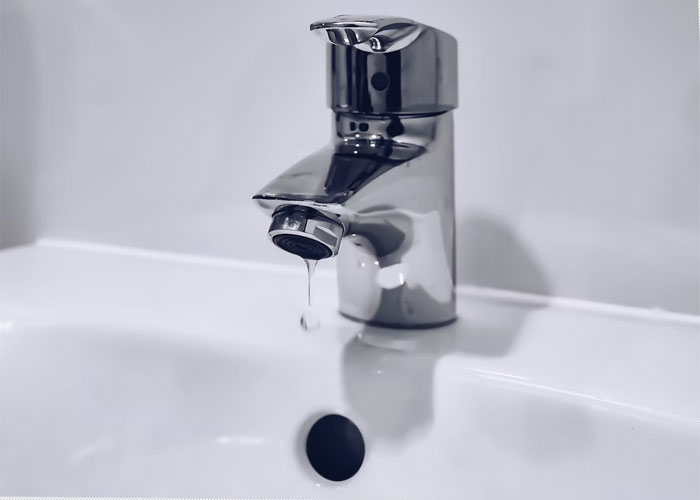 Make sure it has decent water pressure.
Make sure it has decent water pressure.
You don't want to have to "Flush 10 times 15 times" to get those classified documents down
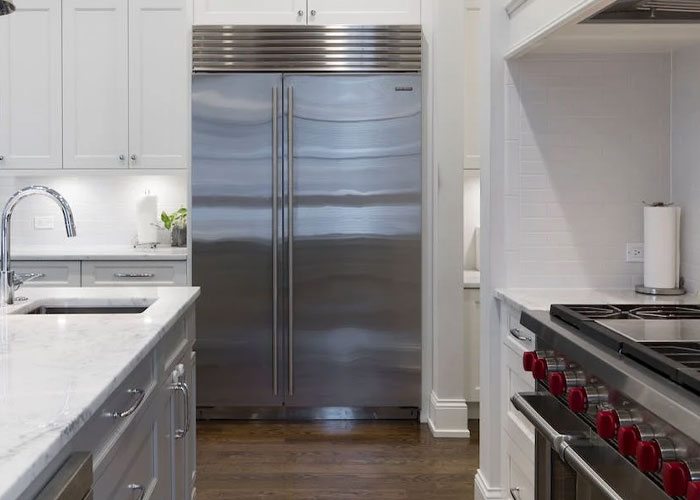 Flush the toilet, open and close the windows, lock and unlock the door, check the fridge and freezer. Basically check everything to see if it works before they give you the lease to sign. You don't want to sign and then find out only one window opens.
Flush the toilet, open and close the windows, lock and unlock the door, check the fridge and freezer. Basically check everything to see if it works before they give you the lease to sign. You don't want to sign and then find out only one window opens.
"We’ve found that the majority of 'mistakes' that arise while renting don’t stem from malice, but rather from a lack of knowledge on one side or the other," the liv.rent team added. "Landlords are only human too, and are just as capable of making mistakes – which is why it’s important to protect yourself by knowing your rights as a tenant."
"For renters, this means being able to recognize common signs of rental scams and studying up on things like average rent prices, what’s on a lease agreement, and what types of deposits are permitted in your area. In short, renting is much safer and easier when you equip yourself with the right knowledge & tools."
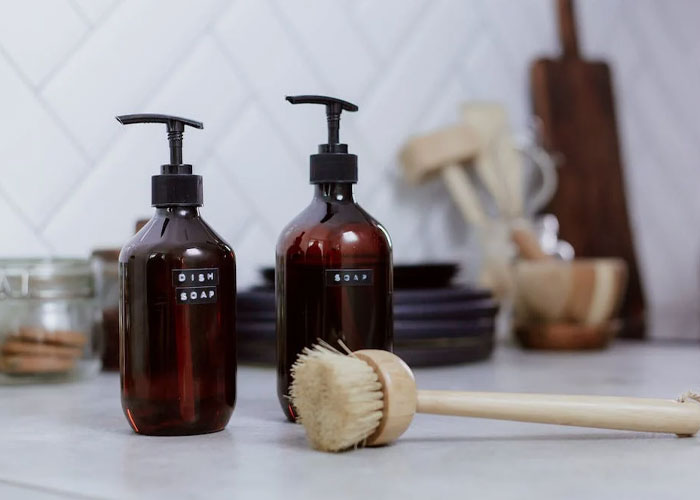 Dish soap is NOT a replacement for your dish-washer soap.
Dish soap is NOT a replacement for your dish-washer soap.
My roommate did this.. came home to a kitchen filled with suds.. it looked like we were having a foam party. I asked her what happened and she said we were out of dishwasher liquid.. so she used dish soap. I like to say she only did this once… but she did again a couple of days later. Her excuse was I used less this time.. lol.
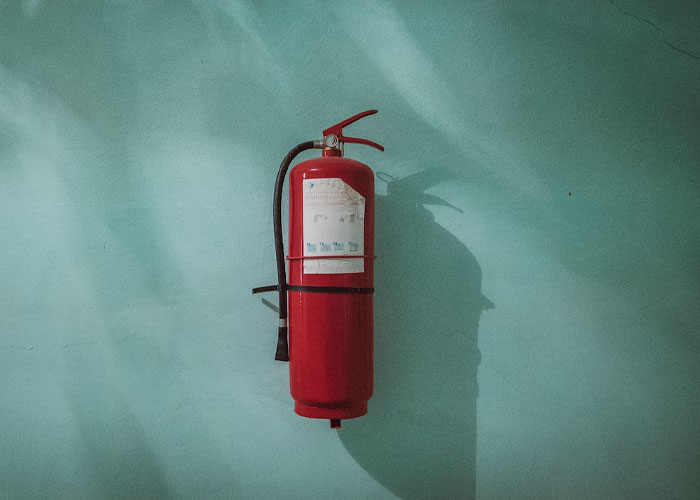 Keep a fire extinguisher near the door.
Keep a fire extinguisher near the door.
If you put it near the stove, if the stove is on fire you might not be able to get to it.
If it's by the door, you can grab it while evacuating, and then make the decision on whether or not to go back in once you're safely outside, rather than having to decide which way to run (out or to the fire extinguisher?) in the middle of an emergency.
You can buy a universal fire extinguisher for $15 at any store like Wal-Mart.
Also, make sure your smoke detectors work. Your landlord should be responsible for making sure you have them, but it's on you to change batteries, etc. And they're not expensive - if your landlord is dawdling, just buy your own and include the receipt as part of your rent or something. Paying an extra $20 is better than being dead.
"For Canadian renters looking to stay safe while renting, liv.rent was designed from top-to-bottom for easy, convenient, and stress-free renting. Our strict, manual verification processes are unique among Canadian rental platforms and seek to eliminate the risk of rental scams altogether by carefully checking landlords’ identities and property ownership," the team told Bored Panda.
"For landlords, we request that users upload a picture of their government-issued photo ID, which we check against the name on their profile as well as a selfie they upload to confirm a match. For property listings, we require landlords upload documents that prove ownership – like land title documents or property tax forms. Once we’ve confirmed a match, both profiles and listings receive a ‘verified checkmark’ icon which is conveniently displayed so renters can recognize it at a glance," they explained.
"On top of this, we’ve added features to streamline the application process and help renters on the liv.rent platform find their perfect home faster," the experts added. "Rather than spending all their time repeatedly filling out different applications, liv.rent renters only need to fill out their profile once and can then apply to as many listings as they want with just a few clicks."
If you'd like to learn more about liv.rent and how to be an educated renter, be sure to visit their website right here.
Don't let yourself get lazy on keeping it tidy. That s**t can snowball *fast*
Bring a set of tools.
No matter how friendly your roommates seem, when money gets involved they will throw you under the bus. Get off the lease as soon as you leave. Set bill rules asap. Get agreements in writing, take pictures.
We also reached out to Parker Cox at Tenant Planet to gain some more insight that might be helpful for first time renters, and he was kind enough to have a chat with us. When it comes to the most common mistakes renters make, Parker said they can be broken down into three categories. The first one being "Property Condition/Expectations". "Generally, people will do a walk through but not thoroughly check the home and therefore miss a chance to discuss with the landlord things like: Are screens going to be placed on the windows, are there going to be shower curtains, will the carpets be cleaned? It is very common for someone who has never rented to be surprised when they get handed the keys on move-in day and its not 'perfect' in the way they were expecting," Parker told Bored Panda.
"Especially for people moving from their parents home, the landlords expectations of 'move in ready' are often different than your mom’s," he added. "Another key point on this is that when people move in, they often don’t perform a move-in move-out form to document condition. TAKE LOTS OF PICTURES. OF. EVERYTHING—before your stuff is moved in. Those pictures are your proof of the condition to protect you when it's time to move out and receive your deposit back. There is no such thing as too many pictures."
 Get familiar with the tenant's rights in your state. Also keep a log of all maintenance requests or calls to the landlord. Nothing formal, just documentation to back you up if an issue arises.
Get familiar with the tenant's rights in your state. Also keep a log of all maintenance requests or calls to the landlord. Nothing formal, just documentation to back you up if an issue arises.
The next step Parker noted that renters commonly make mistakes during is the signing of the contract. "It is shocking how many renter’s don’t read the lease. For most people, it is the largest single contract they have ever signed. READ IT. It is extremely rare that a landlord is trying to pull a fast one, but understanding your responsibilities, their responsibilities and having discussions to make sure everyone is on the same page is a key driver in a good outcome for all parties," he told Bored Panda.
Finally, Parker added that the third category of mistakes that can be made along the rental journey encompass anything and everything else: "Who your roommates are. What the neighborhood is like—which isn’t just safety, but is there parking? Is it walkable? Is it private…etc?"
"These are all questions that you need to make sure you have thought through," he noted. "Oh, Brian doesn’t clean up much, but its not a big deal because he is so funny. Well, when you see a cockroach on a plate in the sink for the first time, and then you have to split the bill for pest control, Brian is going to be hard to put up with for another 9 months. Also, you think you want to live 'in the heart of the fun?' Turns out, people puking on your driveway at 4am and police sirens are not most peoples’ ideas of fun."
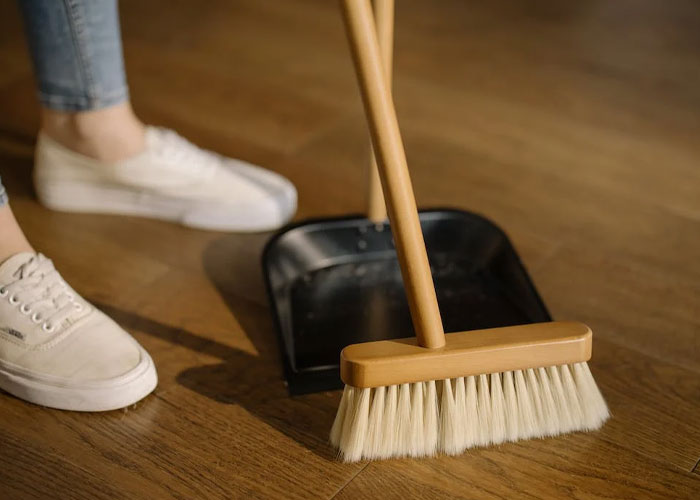 Don't expect your security deposit back. Seriously, no matter what you do, you're not getting all of it back. That's not to say don't try to clean the apartment, just don't expect them not to find issues.
Don't expect your security deposit back. Seriously, no matter what you do, you're not getting all of it back. That's not to say don't try to clean the apartment, just don't expect them not to find issues.
Never failed to get the full security bond back anywhere I rented. Make sure you know your rights and let the agent/landlord know that you do.
Parker also provided some tips for how renters can make the process run more smoothly. "Talk to the landlord a lot before you move in—especially if they are a self-manager/the homeowner," he told Bored Panda. "Building a good relationship is paramount to a positive renting experience. Also, if you and they have misaligned expectations, it is much better to know before you have signed a lease." He also wanted to remind readers that, "There is no such thing as too many pictures when you are recording the condition of the home."
"Go to the neighborhood at a few different times of day," Parker added. "You might notice that there is always a noise issue you want to avoid at 5pm every night, or that parking is terrible, etc. You want to see the house in the morning, in the evening, weekends versus weekdays, etc. You’re making a long term commitment; make sure you understand what that is going to entail."
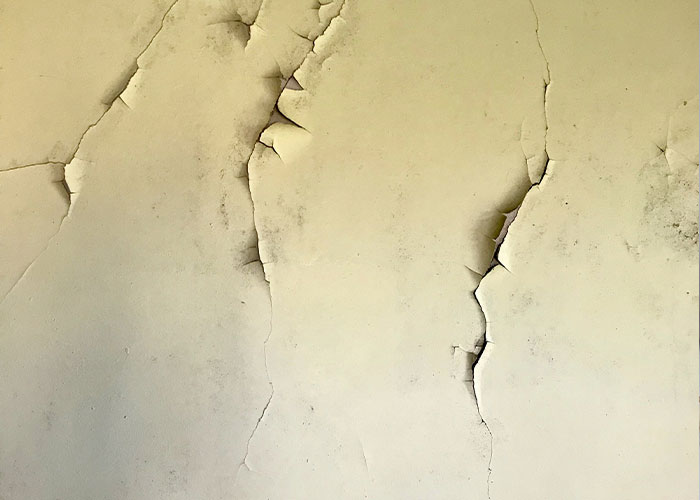 Any damage that happens while you're there and Is not your fault DOCUMENT IT! our neighbors above us had a flood, and it soaked out walls and carpet. We called and no one came to fix it. When we moved out they tried to charge us for water damage. Luckily I had photos and videos of the damage and we were able to get out of it.
Any damage that happens while you're there and Is not your fault DOCUMENT IT! our neighbors above us had a flood, and it soaked out walls and carpet. We called and no one came to fix it. When we moved out they tried to charge us for water damage. Luckily I had photos and videos of the damage and we were able to get out of it.
I think I've never lived a place where renters insurance wasn't required. But if not I would get one. Where I live now, the apartment upstairs had an accident with their washing machine. I just called my insurance company and they handled and paid the repair. The insurance company will get their money from the persons upstairs or their insurance. Nothing of this becomes my problem.
When it comes to red flags to look out for, Parker says, "If your landlord doesn’t respond during the application and showing process, they are going to be a worse communicator when you have a maintenance or payment issue that needs to be addressed. Good communication is more important than a perfect home."
"If the home seems poorly maintained—loose cabinets, windows that don’t fully shut, doors that stick, etc. that means the landlord doesn’t prioritize maintenance of the house and prioritizes cost savings over living quality," He added. "Everyone can look past a door that sticks, but if that's how they treat the doors, then the plumbing, HVAC, (and the other big ticket items) those are treated the same way and those lead to much bigger headaches for tenants."
 Always read reviews of the complex before you apply. If the reviewers constantly talk about how bad the management is, try to avoid that property.
Always read reviews of the complex before you apply. If the reviewers constantly talk about how bad the management is, try to avoid that property.
Always start searching at least 3 months before you absolutely need to be there
That being said though, people tend to complain more than they compliment online.
"Remember that there is no such thing as the perfect home. If you’re leaving Mom’s house and venturing out for the first time, it is going to be different," Parker added. "Your roommates are different, the person in charge is different, the way the home is kept and maintained is different. Anyone can adapt to these issues if they have appropriate expectations. The main mistake almost everyone makes is expecting it to be exactly what you were used to before. If you can keep an open mind and adapt to the situations presented to you, you are going to be fine."
If you'd like to gain more guidance from the experts before renting your next place, or you're a landlord looking for additional resources, be sure to check out Tenant Planet's website right here.
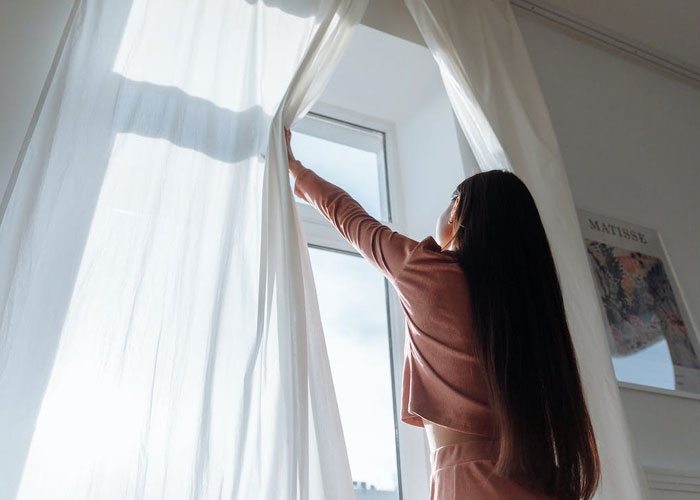 Take your time looking at a place. Don't feel rushed. If the person showing you the place rushes you, ask to reschedule.
Take your time looking at a place. Don't feel rushed. If the person showing you the place rushes you, ask to reschedule.
Check windows in case they stick, try each tap for good water pressure, flush the toilet, check for lit pilots on furnaces, open cabinets to check for water damage, identify basic safety issues like quality of exterior doors/lack of hand railings on stairs.
Document anything and everything.
Budget for renters insurance and accurately inventory your belongings.
Don't get in over your head on your budget (if a roommate bails, will you be ok?), and do prioritize your quality of life. Educate yourself on any potential legal issues/your rights/your landlord's rights.
Also, many states afford rights to people(guests) who stay a certain time. Be careful who you let crash or you may have a really tough time evicting them when you need your space back.
 Get a mattress cover to prevent bed bugs and other pests. If your neighbors get them, you might get them too.
Get a mattress cover to prevent bed bugs and other pests. If your neighbors get them, you might get them too.
If you get bed bugs you really need to call a professional exterminator asap and/or contact the landlord. Bed bugs sucks blood. Mattress covers are good for protecting against spills, sweat, and the skin cells you shred. If you have one of the covers that completely encapsulates the mattress it stops dust mites too. Some people are allergic to dust mites, but they are microscopic and not parasites, they live off the skin cells we shred and mold, so no real problem.
 Always have at least a months rent in savings---ideally more. Most of us are only 1 or 2 setbacks away from not being able to afford rent. At least have the security of being able to afford rent even if you lost your job tomorrow.
Always have at least a months rent in savings---ideally more. Most of us are only 1 or 2 setbacks away from not being able to afford rent. At least have the security of being able to afford rent even if you lost your job tomorrow.
Everyone should have an emergency fund with at least 3-6 months worth of bill money.
 If it's a fairly cheap apartment, expect to hear your neighbors. Above you, below you, all around you. Use a fan or some kind of white noise to sleep to. I'm in an upstairs apartment and got someone new below me who would constantly pound on the walls when I or my kids would just be walking through the apartment claiming we were stomping.....nope, just normal walking without shoes even...
If it's a fairly cheap apartment, expect to hear your neighbors. Above you, below you, all around you. Use a fan or some kind of white noise to sleep to. I'm in an upstairs apartment and got someone new below me who would constantly pound on the walls when I or my kids would just be walking through the apartment claiming we were stomping.....nope, just normal walking without shoes even...
Even if its not cheap but just an older building, you will hear the neighbors and they will hear you. I lived in several apartments before buying my condo. One apartment was in a gorgeous old manor house built around 1740. It was quiet and the neighbors were respectful. I lived there just shy of 9 years. Then a girl moved in below me with a dog that barked at every noise. Even when I just walked from one from to the next. Landlord said I had to be totally silent after 8pm so she could get the dog settled and get to bed by 9. If I got up in the middle of the night to pee, dog barked and she would whine to the landlord. This happend during my final year living there. I couldn't live that way so I moved.
 Try not to spend *any* unnecessary money during the first month or two
Try not to spend *any* unnecessary money during the first month or two
Then you'll hopefully have some laid back for when you might need it *and* you'll be sure to know how much you can and have to spend
Good luck
Luck seems to be the most important factor when looking for apartments these days...
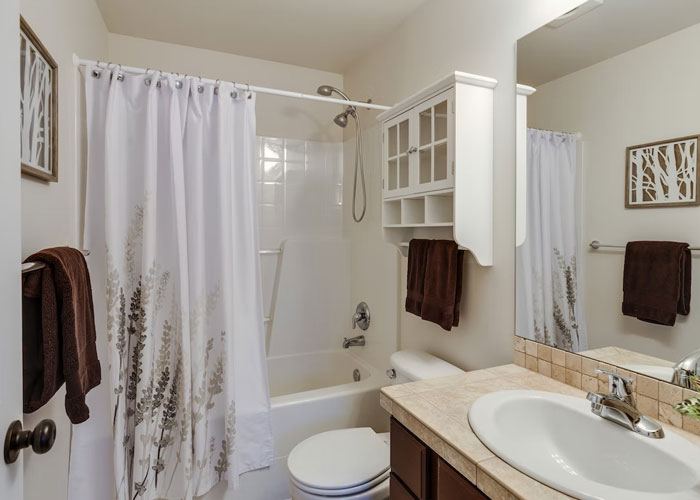 Make sure to get all the little essentials. Trash cans, broom and dustpan, shower curtain, etc. These are things i didnt think about until i had already moved in.
Make sure to get all the little essentials. Trash cans, broom and dustpan, shower curtain, etc. These are things i didnt think about until i had already moved in.
 Set a budget and stay within it. Don't let yourself be talked into something you can't really afford.
Set a budget and stay within it. Don't let yourself be talked into something you can't really afford.
In some countries it's the other way around, even if you can afford it, the landlord and agency will tell you you don't earn enough per their standards
 You're gonna f**k up in one way or another. Take as many notes as you can of all the mistakes that you'll definitely make so you can learn from them when "second apartment" time comes along.
You're gonna f**k up in one way or another. Take as many notes as you can of all the mistakes that you'll definitely make so you can learn from them when "second apartment" time comes along.
You should also knock on the tiles in the bathroom. If there is a hollow space under a tile, it can at worst mean water damage in the future and you don't want to take responsibility for that because you didn't cause it.
So I'm guessing this is Australia based which I can't speak on because I live in the US but 3 honorable mentions for me would be 1.. get renters insurance it's cheap but can save u n the long run. 2..check the maintenance times can't tell you how many times sewer got backed up and flooded the apartment and 3..go to the hardware store and buy a decent shower head (keep the old one to put back when you move out) in most apartments they use low flow shower heads.
Oh and be careful how many holes you put in the wall. And ask your landlord for the paint color but a small thing just you wouldn't believe how handy this is
You should also knock on the tiles in the bathroom. If there is a hollow space under a tile, it can at worst mean water damage in the future and you don't want to take responsibility for that because you didn't cause it.
So I'm guessing this is Australia based which I can't speak on because I live in the US but 3 honorable mentions for me would be 1.. get renters insurance it's cheap but can save u n the long run. 2..check the maintenance times can't tell you how many times sewer got backed up and flooded the apartment and 3..go to the hardware store and buy a decent shower head (keep the old one to put back when you move out) in most apartments they use low flow shower heads.
Oh and be careful how many holes you put in the wall. And ask your landlord for the paint color but a small thing just you wouldn't believe how handy this is

 Dark Mode
Dark Mode 

 No fees, cancel anytime
No fees, cancel anytime 












